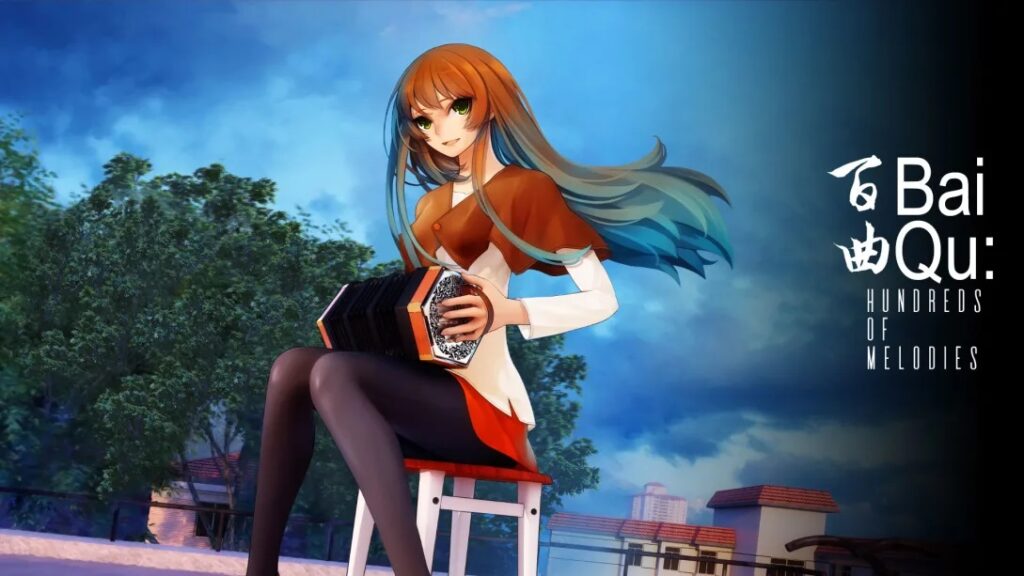
There are tons of visual novels out there these days and it’s tough to sort through them all. Some are absolutely spectacular, like Steins; Gate, Clannad, or Doki Doki Literature Club (which we recently reviewed here). Others are short, odd, or just downright niche and some are simply bad. It doesn’t matter whether it’s a AAA title either. Some of the high-budget VNs are terrible, and a few of the cheaper VNs such as Synergia (review), The Language of Love (review), or the absolutely unmatched Necrobarista (review) are utterly excellent in various ways.
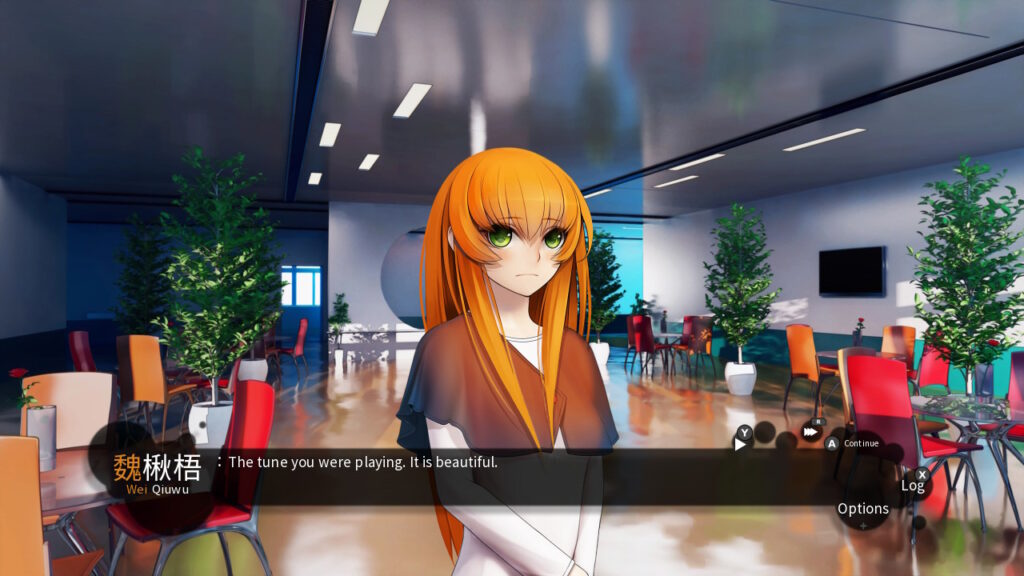
Today, we’re looking at yet another entry into the rapidly growing list of visual novels, Bai Qu: Hundreds of Melodies from Chinese indie dev Magenta Factory and publisher Ratalaika Games. Bai Qu is an odd beast, as you’ll likely have already noticed from the images. The artwork is severe and odd, very different from the average visual novel, and remarkably different from most Japanese ones. The game is a sequel to another Magenta Factory release, Shan Gui, which is oddly unavailable on Switch, but if you’re really interested, you can pick up a copy on Steam for $.99. In Bai Qu, you start out as the neighbor of a high school girl whom you have discovered succumbed to a mysterious illness. Just as you’re processing this information, a college student shows up talking about her and the game quickly switches to his perspective. Now you’re Wei Qiuwu, meeting the lovely yet sickly Li Jiayun and her friend and the story takes shape.
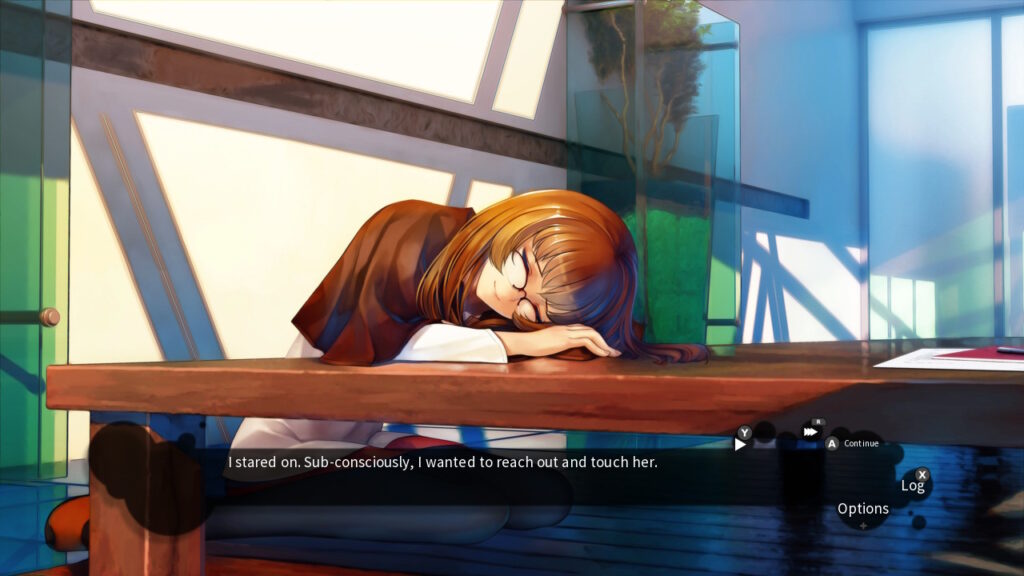
This is a slice of life story if ever there was one, and while you’re offered a few options here and there, the majority of the game is reading. There are of course, multiple endings, but you’ll have to go back through to get them, and the real question is…will you want to? Bai Qu is interesting because both it and Shan Gui are remarkably well-regarded, but in playing through Bai Qu, it’s kind of hard to see why. Let’s take a closer look at what you’re really digging into here.

First off are the characters. Wei Qiuwu is a college student that lives at home with his parents and he takes an unhealthy and oddly creepy liking to the sickly Li Jiayun, who is only 15. Is it sexual? Is it not? It’s hard to say, as Jiayun isn’t exactly drawn to look 15 and Wei definitely has his own reservations. He Jia, the other main character is oddly peppy and trusting, and fairly irritating to boot and she vacillates between urging Wei toward Jiayun and protecting her from him. It’s all kind of subtle but odd. As the story progresses, we see the trio traipse all over Nanjing, China as we get a peek into their lives. There’s no sense in going through the plot here, since that’s kind of the point of a visual novel, but there’s nothing shocking, no big twist. Don’t expect one.

And the art. The art in Bai Qu is simply odd. After years of playing both Western and Japanese visual novels, Bai Qu just looks wrong somehow. The character models feel off in a way that’s hard to define and the entire look of them has a distinctly Chinese pop culture look that’s at odds with traditional expectations in this genre. Additionally, while most of the screenshots you see are lush, character-filled affairs, the actual game is almost entirely empty rooms and text at the bottom of the screen when you’re not talking to the main characters, making a fair portion of the game feel empty and hollow. Sure, the backdrops are great with lots of detail, but they’re backdrops and they certainly don’t make up for a variety of cast members. There are a number of weirdly inappropriate images as well, including shots that are incredibly borderline panty –style shots of Bai Qu, a girl who is supposed to be under age, and a lot of imagery dressing up with ears and tails and whatnot and carousing with each other, all related to a play He Jia is writing. What it ends up as is a bunch of light eroge with furry elements though, and the execution of these is kind of weird. It’s not entirely inappropriate and we’ve certainly reviewed worse games than this here, but there’s no question as to the subtext of Bai Qu.

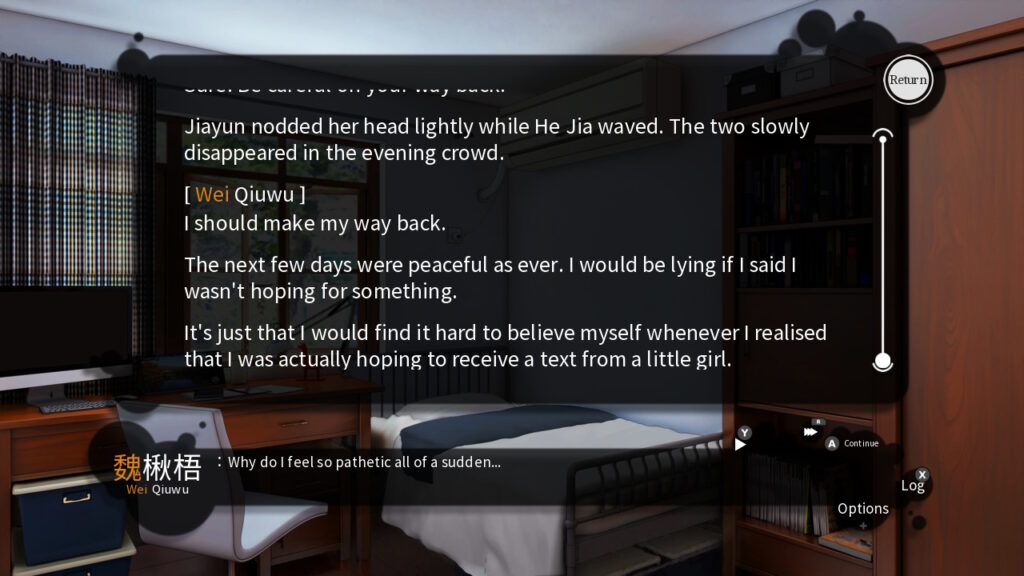
With that in mind, it’s not that the game is bad at all. The whole feel is a bunch of interconnected heartfelt moments of a girl who is absolutely going to die. The game somehow manages to make you forget about that here and there though and the overall vibe is surprisingly positive. Things have to get darker at some point, of course, but it’s definitely a taste of the sweet and bittersweet lots in life that we all get at random. Even with all that though, the pacing in Bai Qu is remarkably slow and the characters are not necessarily easy to identify with.
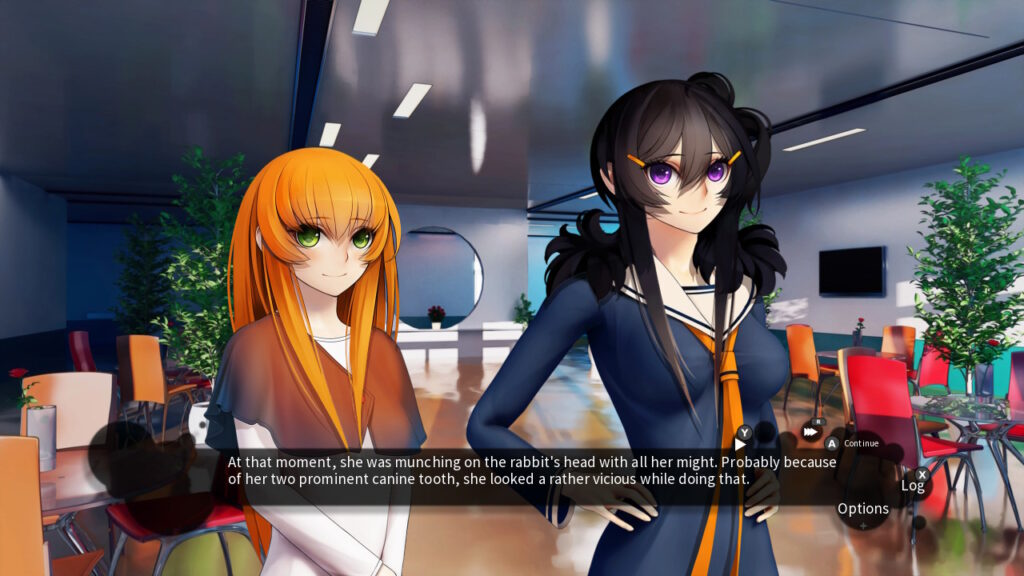
In one scene for example, Wei tries to teach the girls to ride bikes because they don’t know how. As teenagers. And a hospital nurse wants to learn too, because they’re all envious of how Wei can ride a bike. Seriously. It’s scenes like this that pull a Western player entirely out of any immersion because they’re so utterly alien that they feel like they’re from a different country, which is of course exactly the case. As a Chinese visual novel, a lot of the cultural references are odd and feel out of place. Japanese culture has become so familiar to Western gamers that it doesn’t feel odd anymore but Chinese is entirely new for the most part and it’s more than a bit disconcerting. Perhaps if you’re more familiar with modern Chinese culture (I studied dynastic Chinese history in university myself) the situations would feel more normal, but as it stands, the scenarios in Bai Qu often just seemed weird, causing more distancing from the characters.
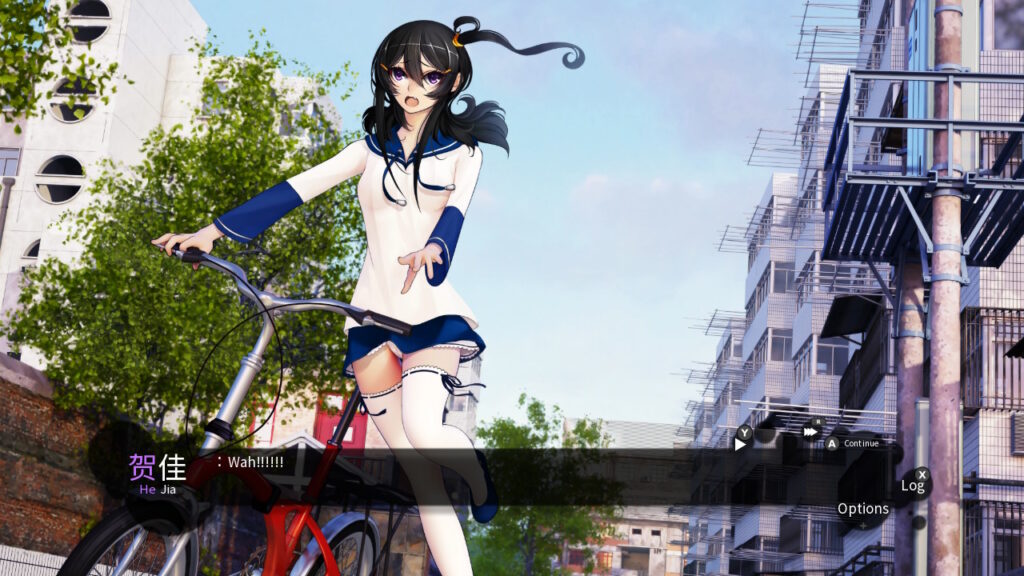
This continued with the dub for Bai Qu, which is entirely in Chinese. The sheer volume of text that’s read aloud is staggering, and while the voice actors seem to be quite good, the feel of Chinese on the ears after you’ve become used to hearing Japanese dubs is a bit odd as well. This is a weird thing to try to explain but it just feels different. And with the shrill voices of a few of the characters combined with the newness of Chinese dubs, there’s a sort of dissonance created that makes you want to shut the dub off and just read. The music is quite decent in Bai Qu, but the audio dub is definitely not going to be everyone’s taste, even if it’s perfectly serviceable. Oh, and the controls are good. Full touch contextual buttons are integrated for screen-only play and the menu system is clear and easy to use. Bai Qu is excellent on a technical level and very user-friendly as visual novels go!
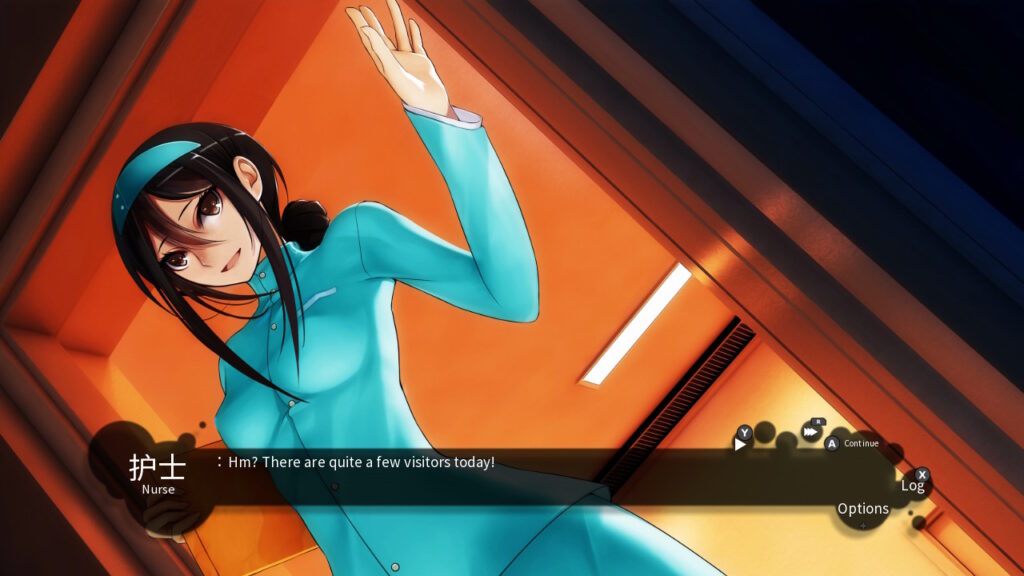
If you’re into slice of life stories and somewhat romantic stories and don’t mind a little clearly defined tragedy, Bai Qu: Hundreds of Melodies can be a moving story. It’s not the best visual novel out there, but it’s also not the worst either. While the art style is odd, it slowly becomes more familiar as you play and the characters are strange but ultimately seem like they’d be well-written if you are familiar enough with the culture. As a Westerner, it’s hard to say. But the entire game is kind of a slow burn, even if it’s only around 8 or 9 hours long, and unless you’re really into this kind of thing, chances are you’ll quit long before you make any significant headway in Bai Qu. It’s not quite fully interactive, it’s not quite kinetic, and while it tries to hit you in the feels, it doesn’t always succeed, perhaps because of translation to English or perhaps simply because of the writing, it’s difficult to say. While it’s hard to recommend Bai Qu, it’s also hard to say it’s a bad game, so maybe give this one a shot if it goes on sale on the Switch eshop.
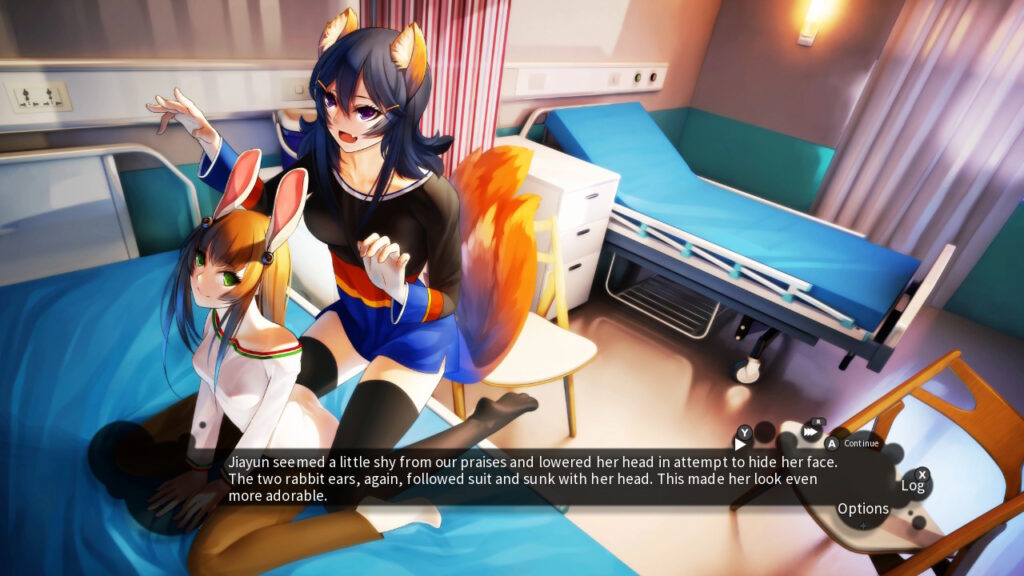
This review was based on a digital copy of Bai Qu: Hundreds of Melodies provided by the publisher. It was played on a Nintendo Switch in both docked and undocked modes and played equally well on both. Bai Qu: Hundreds of Melodies is also available on PC for steam.

